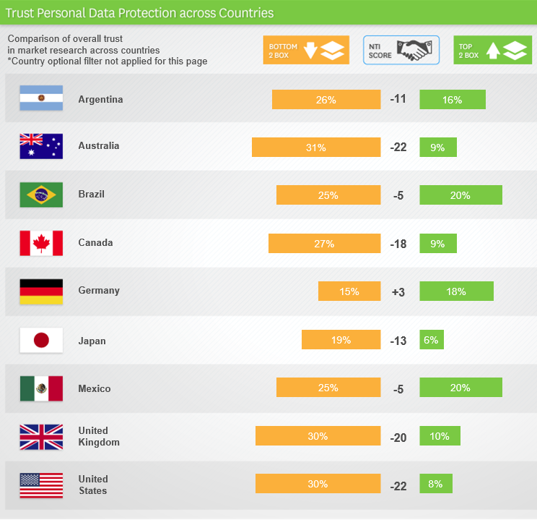The grbnnews.com website, including all of its features and content (‘Website’) is a service made available by Global Research Business Network (GRBN), and all content and information provided on and through this Website (‘Content’) may be used solely under the following terms and conditions. Users of this website agree to be bound by these terms and conditions, which are subject to change at the discretion GRBN.
Intellectual Property
By using this Website, you agree that the content and Website are protected by copyrights, trademarks, service marks, patents or other proprietary rights and laws and may not be modified, copied, republished or distributed without acknowledging the grbnnews.com website as the source of such material or information. All intellectual property in relation to material included on this site belongs to GRBN or to the third party. In the later case, the IP owner agrees to grant rights to GRBN under the “User generated content” section below. The third-party content included in this site (including article contributors and advertisers) is subject to that third party’s terms and conditions of use.
Liability
We will do our best to ensure that the content and information published on our Website are accurate, however, as GRBN relies on the submissions of the third-parties, the completeness, adequacy or currency of the Content is not warranted or guaranteed. Your use of information on this Website or materials linked from this Website is at your own risk. We accept no liability for any loss, injury, claim, liability, or damage of any kind resulting from your use of this Website or any facts or opinions appearing on this website. The content of the Website is not intended to and does not constitute legal, financial, medical or technical advice of any other kind.
User generated content
Some of the Website content is generated by the members of GRBN or the general public. If you submit content to GRBN, you agree to be bound by these terms and conditions.
Unless otherwise agreed in writing, by submitting your content to the Website, you grant the GRBN an irrevocable, royalty free and perpetual licence to use, disclose and sub-licence the content and understand that GRBN may use all intellectual property rights in your content, including publication of that material on the Website, hard copy publications or in electronic media, social media, using your content in advertising and promotional material for the GRBN, without restriction and without making payment to you.
You acknowledge that you are solely responsible for the accuracy, completeness and legal compliance of the submitted content.
You warrant that you have all the necessary rights (including any intellectual property rights), in the Content (including photographs, illustrations, audio and video content) you contribute to the Website.
GRBN editors and moderators at their discretion may edit or remove your content.
These terms and conditions are subject to change at any time.
Third party links
Some of the Website content includes links to the third-party content. GRBN makes no representations about any other web sites and by accessing third party links, you understand that it is independent from GRBN resources and that we have no control over the content or availability of that content. You understand that the information and opinions in the third-party content is neither endorsed by nor does it reflect the belief of GRBN.
Advertisers
This Website may contain advertising and sponsorship. Advertisers and sponsors are responsible for ensuring that material submitted for inclusion on this Website is accurate and complies with applicable laws.
Privacy
Your use of this Website is subject to the GRBN’s Privacy Policy.
 This might surprise many people in our industry, but many research participants (already giving research companies their personal data) do not consider our industry’s collection and use of their personal as appropriate, and 55+ year olds are more likely to find the collection and use of personal data by market research companies inappropriate (35%) rather than appropriate (22%). We are pretty sure that amongst people who never or seldom take surveys these numbers would be much worse.
Our earlier research into this issue gives some insight into why this is… The 2014 survey found that people consider many types of the data we collect to be sensitive personal data, for example; more than one-in- four people considered the following, amongst others, to be sensitive personal data; their IP or MAC address, their location data via their mobile, their picture and their email address.
Are we sensitive enough to this sensitivity when we ask for these things?
Communication and transparency are key!
Four-in-ten people answering the survey do not feel well informed about how market research companies collect, store and use personal data. Amongst those having a low trust in market research companies that proportion rises to over six-in-ten.
Whilst we could argue, which is the chicken and which is the egg, that argument is rather irrelevant. The fact remains that people do not consider themselves to be well informed, period. So the onus is on us to inform them with transparency and in a way they understand. This is one of the key objectives of the GRBN Building Public Trust Programme, which you can read more about here.
This might surprise many people in our industry, but many research participants (already giving research companies their personal data) do not consider our industry’s collection and use of their personal as appropriate, and 55+ year olds are more likely to find the collection and use of personal data by market research companies inappropriate (35%) rather than appropriate (22%). We are pretty sure that amongst people who never or seldom take surveys these numbers would be much worse.
Our earlier research into this issue gives some insight into why this is… The 2014 survey found that people consider many types of the data we collect to be sensitive personal data, for example; more than one-in- four people considered the following, amongst others, to be sensitive personal data; their IP or MAC address, their location data via their mobile, their picture and their email address.
Are we sensitive enough to this sensitivity when we ask for these things?
Communication and transparency are key!
Four-in-ten people answering the survey do not feel well informed about how market research companies collect, store and use personal data. Amongst those having a low trust in market research companies that proportion rises to over six-in-ten.
Whilst we could argue, which is the chicken and which is the egg, that argument is rather irrelevant. The fact remains that people do not consider themselves to be well informed, period. So the onus is on us to inform them with transparency and in a way they understand. This is one of the key objectives of the GRBN Building Public Trust Programme, which you can read more about here.  This might surprise many people in our industry, but many research participants (already giving research companies their personal data) do not consider our industry’s collection and use of their personal as appropriate, and 55+ year olds are more likely to find the collection and use of personal data by market research companies inappropriate (35%) rather than appropriate (22%). We are pretty sure that amongst people who never or seldom take surveys these numbers would be much worse.
Our earlier research into this issue gives some insight into why this is… The 2014 survey found that people consider many types of the data we collect to be sensitive personal data, for example; more than one-in- four people considered the following, amongst others, to be sensitive personal data; their IP or MAC address, their location data via their mobile, their picture and their email address.
Are we sensitive enough to this sensitivity when we ask for these things?
Communication and transparency are key!
Four-in-ten people answering the survey do not feel well informed about how market research companies collect, store and use personal data. Amongst those having a low trust in market research companies that proportion rises to over six-in-ten.
Whilst we could argue, which is the chicken and which is the egg, that argument is rather irrelevant. The fact remains that people do not consider themselves to be well informed, period. So the onus is on us to inform them with transparency and in a way they understand. This is one of the key objectives of the GRBN Building Public Trust Programme, which you can read more about here.
This might surprise many people in our industry, but many research participants (already giving research companies their personal data) do not consider our industry’s collection and use of their personal as appropriate, and 55+ year olds are more likely to find the collection and use of personal data by market research companies inappropriate (35%) rather than appropriate (22%). We are pretty sure that amongst people who never or seldom take surveys these numbers would be much worse.
Our earlier research into this issue gives some insight into why this is… The 2014 survey found that people consider many types of the data we collect to be sensitive personal data, for example; more than one-in- four people considered the following, amongst others, to be sensitive personal data; their IP or MAC address, their location data via their mobile, their picture and their email address.
Are we sensitive enough to this sensitivity when we ask for these things?
Communication and transparency are key!
Four-in-ten people answering the survey do not feel well informed about how market research companies collect, store and use personal data. Amongst those having a low trust in market research companies that proportion rises to over six-in-ten.
Whilst we could argue, which is the chicken and which is the egg, that argument is rather irrelevant. The fact remains that people do not consider themselves to be well informed, period. So the onus is on us to inform them with transparency and in a way they understand. This is one of the key objectives of the GRBN Building Public Trust Programme, which you can read more about here. 






